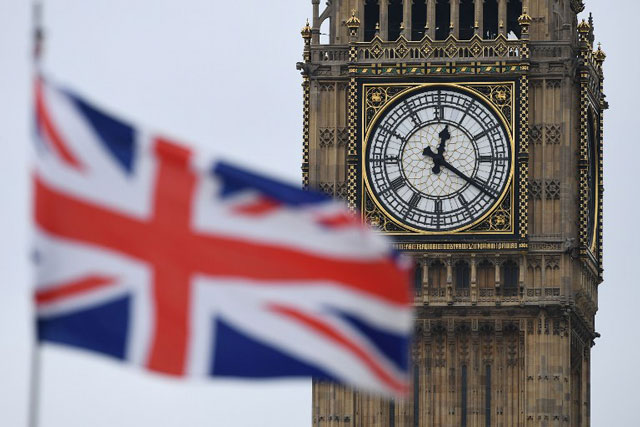
Brussels, Belgium | AFP |Britain and the European Union launch a new round of fraught Brexit negotiations Monday with Brussels pressing weakened British Prime Minister Theresa May to quickly set out her divorce strategy.
Brexit minister David Davis travels to Brussels to meet Michel Barnier, the EU’s chief negotiator, for a second round of hugely complex haggling on Britain’s withdrawal from the bloc, scheduled for March 2019.
Ahead of four days of talks this week, Frenchman Barnier warned that the “hard work starts now” following the largely ceremonial first round of talks in June, and that the “clock was ticking” to reach a deal.
The EU has demonstrated increasing confidence in recent weeks, accusing Britain of dithering over whether it wants a “hard” or “soft” Brexit more than a year after the shock referendum that propelled May to power.
Davis said the focus would be the sensitive issue of citizens rights, and that “real progress” was paramount.
“We made a good start last month, and this week we’ll be getting into the real substance,” Davis said in a statement ahead of the talks.
Barnier and Davis last month agreed on a potential timetable for negotiations towards a future trade relationship, which Britain would like to start as soon as possible.
But Brussels insists it will only start discussing the future once there has been “sufficient progress” on key issues involved in Britain’s withdrawal — an estimated 100-billion-euro ($112 billion) exit bill, citizens rights, and the border in Northern Ireland.
“On each one of these early phase topics, our goal is to ensure that we are all working from the same basis with shared goals,” Barnier told reporters on Wednesday.
– Not ‘whistling’ but ‘ticking’ –
The four days of talks are set to also address more detailed concerns such as Britain’s future in Euratom, the EU’s nuclear safety agency, and the role of the European Court of Justice, the EU’s top court.
Common ground was very much lacking last week after British foreign minister Boris Johnson’s remarked that the EU could “go whistle” over its massive Brexit bill demand, drawing a rebuke from Barnier.
“I am not hearing any whistling, just the clock ticking,” said the former European Commissioner and French foreign minister.
UK finance minister Philip Hammond said Sunday that Britain will take responsibility for the money it owes, but dismissed the 100 billion euro figure as “ridiculous”.
Barnier last week held a series of meetings in Brussels with British opposition Labour leader Jeremy Corbyn and other UK figures at odds with May.
“My door is open, listen to all Brexit views,” Barnier tweeted after talks with Corbyn, Scotland’s Nicola Sturgeon and Wales’s Carwyn Jones.
Barnier’s deputy met with Gibraltar Chief Minister Fabian Picardo, with Brexit having reignited a sovereignty row between Britain and Spain over the rocky Mediterranean outcrop.
They are all deeply wary of May’s hardline approach that would see the UK leave the EU without full access to the bloc’s single market of 500 million people, in order to curb free immigration from the bloc.
– ‘Power grab’ –
May’s minority government remains fragile one month after the snap June 8 election in which her Conservative Party lost its majority, forcing it to seek an alliance with Northern Ireland’s small ultra-conservative Democratic Unionist Party.
The tensions have shaken the British government, which on Thursday introduced the draft law that would formally put an end to Britain’s membership of the European Union.
May faces a battle over the bill, which opponents said included a dangerous “power grab” by London at the expense of Scotland and Wales.
Hammond, a potential rival to May, acknowledged that ministers were divided on many elements of Brexit, after weekend newspapers were filled with reports of in-fighting.
“I think on many fronts it would be helpful if my colleagues — all of us — focused on the job in hand. This government is facing a ticking clock over the Brexit negotiations,” Hammond said.
 The Independent Uganda: You get the Truth we Pay the Price
The Independent Uganda: You get the Truth we Pay the Price


